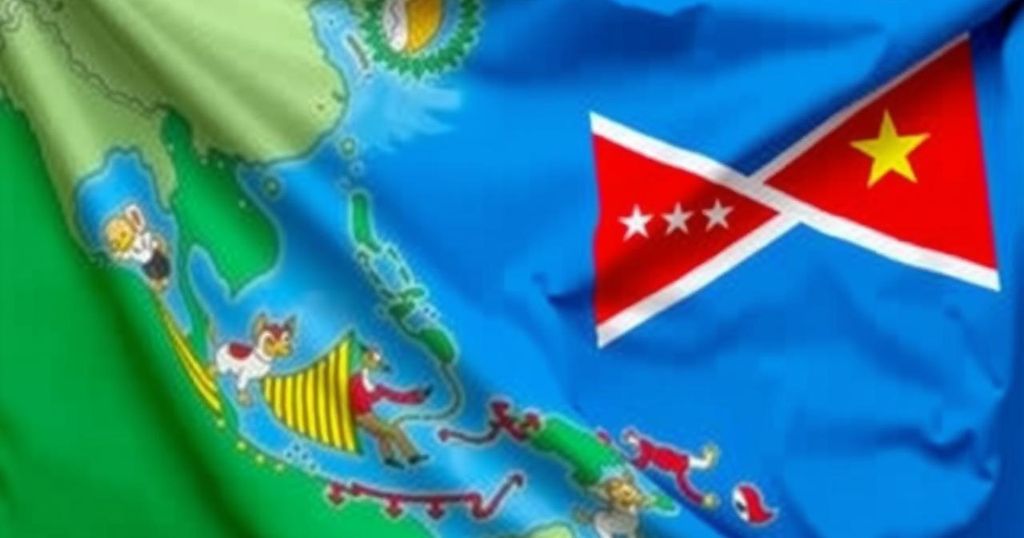Papua New Guinea has announced a boycott of the upcoming UN climate summit, deeming it a “waste of time” amid frustrations over unfulfilled commitments from major polluting nations. The Minister of Foreign Affairs, Justin Tkatchenko, criticized the COP process, advocating instead for direct, bilateral climate agreements with countries like Singapore.
In a notable declaration, Papua New Guinea has announced its intention to boycott the forthcoming UN climate summit, criticizing the proceedings as a mere “waste of time” characterized by empty promises from major polluting nations. The statement, made by Foreign Minister Justin Tkatchenko, reflects a growing sentiment of frustration with the annual COP (Conference of Parties) meetings, which have often been criticized for their lack of tangible progress and accountability. Minister Tkatchenko elaborated on the rationale behind this decision, stating, “There is no point going if we are falling asleep because of jet lag because we are not getting anything done.” He expressed disillusionment regarding the commitments made by large polluters, noting, “All the big polluters of the world promise and commit millions to assist in climate relief and support. And I can tell you now it’s all going to consultants.” Papua New Guinea, home to one of the largest expanses of rainforest worldwide, is acutely aware of its vulnerability to the impacts of climate change. Tkatchenko criticized the COP process, declaring, “COP is a total waste of time. We are sick of the rhetoric as well as the merry-go-round of getting absolutely nothing done over the last three years.” He highlighted the paradox of the nation absorbing pollution from more industrialized countries while receiving scant recognition or support in return. Historically, COP meetings have been pivotal in advancing global climate discussions, including the landmark Paris Agreement in 2015. However, subsequent summits have increasingly faced backlash, particularly from developing nations that perceive these talks as mere talkfests lacking substantive outcomes. Tkatchenko’s comments resonate with similar sentiments previously expressed by other nations, such as the temporary walkout led by African nations during the 2009 Copenhagen talks due to dissatisfaction with emission reduction commitments. In light of these concerns, Papua New Guinea intends to pursue independent climate partnerships, as evidenced by ongoing negotiations with nations like Singapore. Tkatchenko posited that such bilateral agreements could yield significantly greater benefits than those expected from COP participation, stating, “With like-minded countries like Singapore, we can do 100 times more than COP.” As discussions ahead of COP29 falter, the decision to boycott reflects deep-seated dissatisfaction with global climate governance, particularly regarding the lack of actionable support for developing nations facing severe climate risks. Papua New Guinea joins the ranks of other nations that have contemplated a re-evaluation of their participation in COP meetings, aiming instead for direct and impactful climate negotiations with countries that are willing to collaborate effectively.
The context of Papua New Guinea’s decision to boycott the UN climate summit stems from a broader dissatisfaction with the effectiveness of international climate negotiations. Over the past few years, many governments and civil society groups have raised concerns regarding the perceived inefficacy of major polluters’ commitments, especially in addressing urgent climate needs. Papua New Guinea, characterized by its extensive rainforest and vulnerability to climate change impacts, feels particularly aggrieved by the lack of substantive outcomes from previous COP meetings. This dissatisfaction is further compounded by slow bureaucratic processes surrounding adaptation funds intended for developing nations.
In summary, Papua New Guinea’s boycott of the upcoming UN climate summit reflects a profound frustration with the perceived ineffectiveness of international climate negotiations. By prioritizing bilateral agreements with like-minded countries, Papua New Guinea aims to forge more effective partnerships that directly address its climate challenges. The decision underscores the urgent need for genuine action and accountability from major polluters in the global climate discourse.
Original Source: www.rfi.fr






